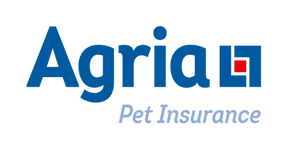Having fun with your dog in the garden is a great way to spend quality time together. Making that time as safe and enjoyable as possible is essential, so here are some things to consider when planning how to make your garden dog-friendly.
09 September 2020
Make your garden secure
One of the first things to think about before you let your dog out in the garden is how secure it is. Check all your fences and hedges, especially for any gaps that could be tempting for a dog to investigate and dig. Fences in the garden need to be high enough to stop your dog from being able to jump over.
Unfortunately, the recent sharp rise in dog theft is another reason to make sure your garden is secure, and ideally, ensure that your dog is not visible. Think carefully before adding a ‘Max lives here, please close the gate’ sign – while safety is, of course, important, alerting passers-by to the fact that a dog lives at your house may make them a target.
Dog-friendly plants
When planning your garden, it’s worth spending some time finding out about dog safe plants for your outdoor space. There are lots of beautiful dog safe flowers and plants such as roses and honeysuckle, however, there are also some very common garden plants that are toxic to dogs, including daffodils and tomato plants – read here for further information. If you think your dog might have consumed any toxic plants, contact your vet straightaway for advice.
Playtime
Not only do you need to think about eliminating poisonous plants for dogs, it’s also worth looking at plants that will stand up to dogs running through them, large wagging tails – not to mention digging! Depending on your space, you might be able to include paths for an easier route through the garden, and creating raised beds provides some protection for more delicate plants. You could even make a dog play area, using sand or bark.
Dog safe garden tips
- Don’t let your dog eat slugs or snails. Infected slugs and snails can cause your dog to contract lungworm. Additionally, they may have consumed slug pellets, which are highly toxic to dogs
- Keep any sheds or outbuildings secure – particularly if you are storing any chemicals, fuel or dangerous tools
- Avoid using any chemicals on your plants or in ponds to prevent the possibility of your dog accidentally eating or drinking anything they shouldn’t
- If you have a compost bin, keep it secure and closed – your dog might be tempted to investigate decomposing food, some of which could be harmful
- Tidy up clippings and garden debris promptly when gardening
- Regularly pick up acorns and conkers during the autumn
With all these tips considered, you and your dog can have hours of safe playtime together in your garden, all year round!
If you have an Agria Pet Insurance policy, you can access the free Pet Health Helpline, 24 hours a day, 7 days a week. The veterinary-trained team will advise on any concerns or queries that you may have over your pet’s health – much like the NHS 111 service for people. Call free on 03333 32 19 47.
